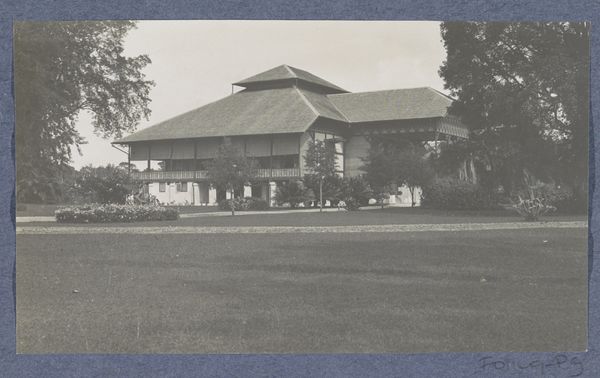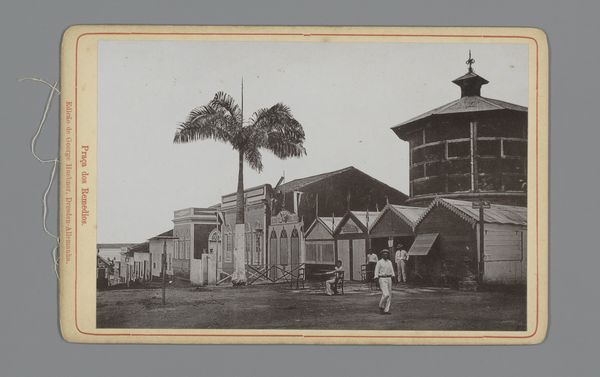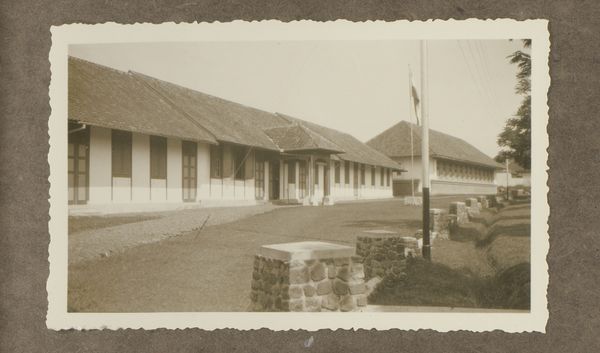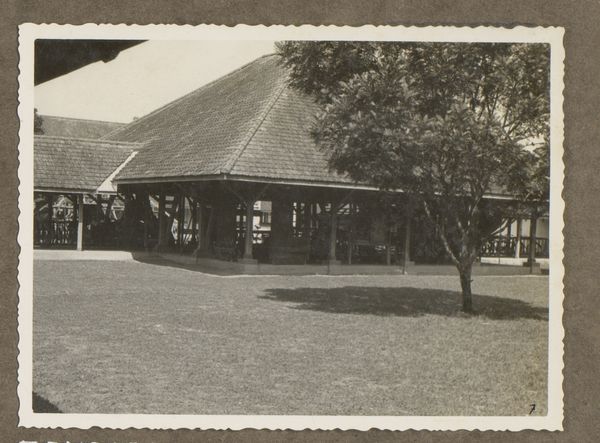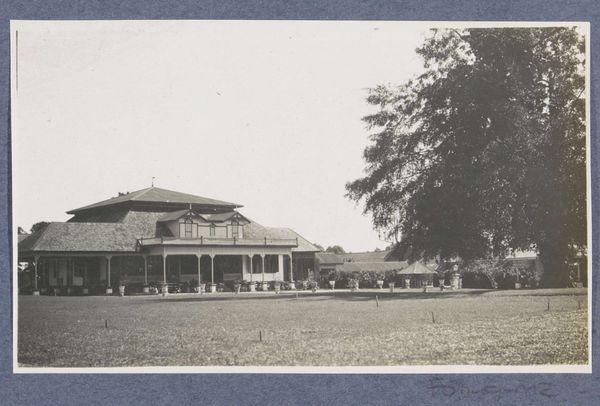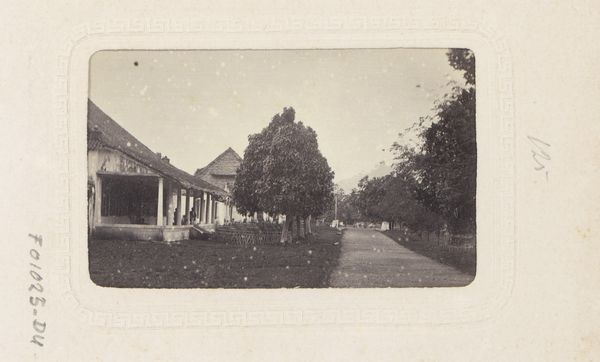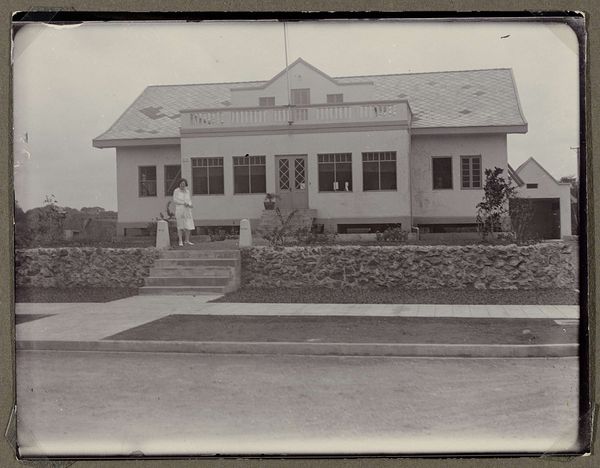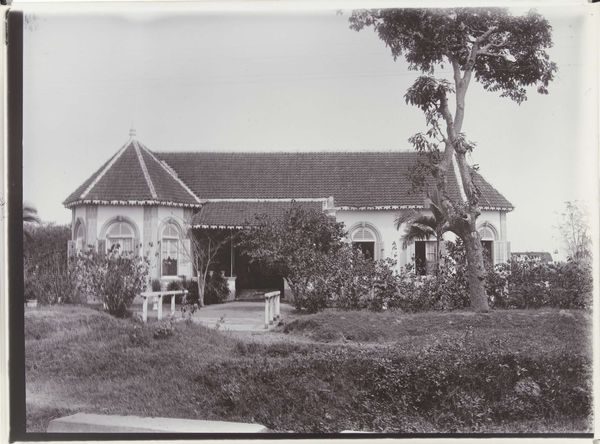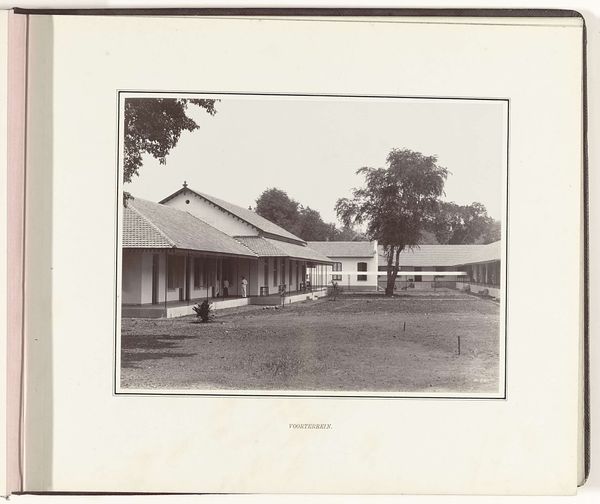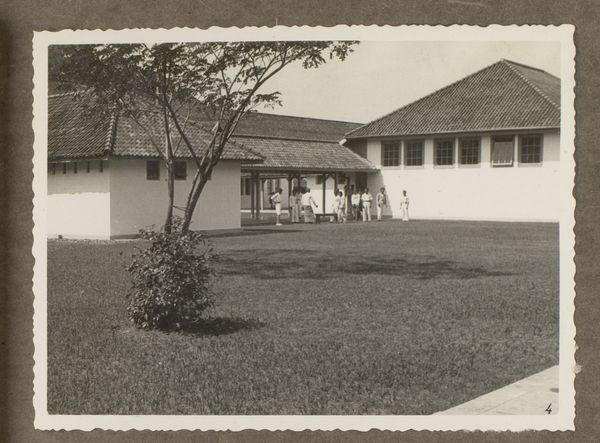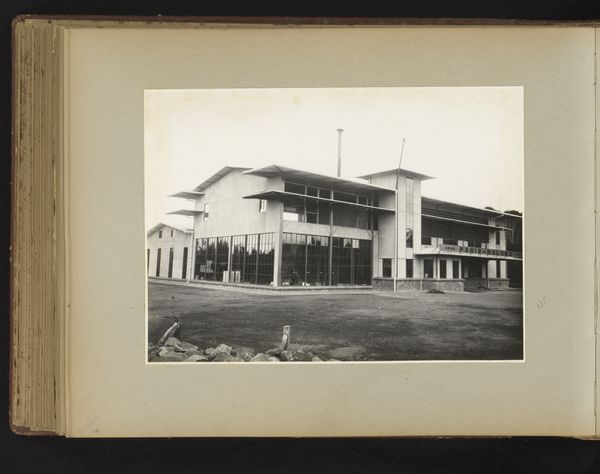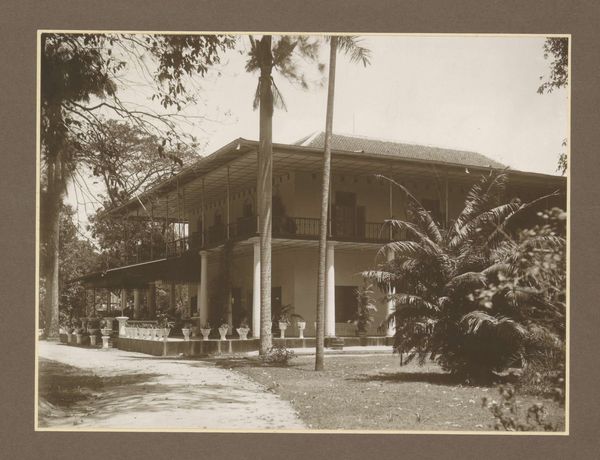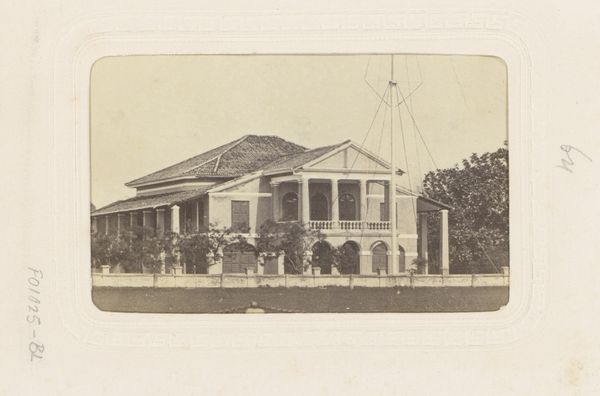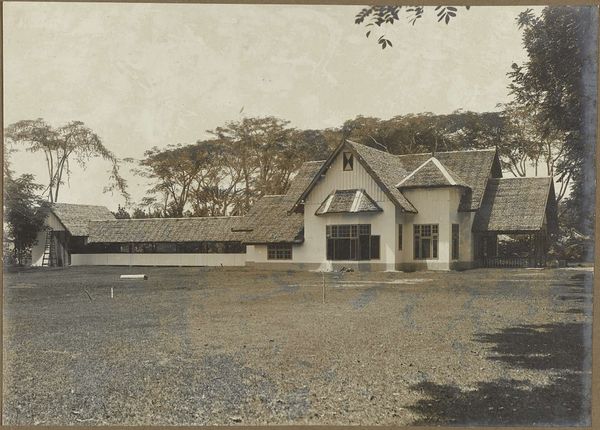
Exterieur van het huis en de tuin van de inspecteur van de Deli Maatschappij te Bindjai Langkat op Sumatra c. 1900 - 1920
0:00
0:00
anonymous
Rijksmuseum
photography
#
landscape
#
photography
#
realism
Dimensions: height 81 mm, width 140 mm
Copyright: Rijks Museum: Open Domain
Curator: This is a photograph dating from around 1900 to 1920, entitled “Exterior of the house and garden of the inspector of the Deli Maatschappij in Bindjai Langkat, Sumatra.” The creator is anonymous, but the piece is held here at the Rijksmuseum. Editor: It’s stark. Almost sterile, in its composition. The expanse of lawn and the imposing architecture... there's an odd feeling of both openness and confinement. The building and watchtower loom, while small human figures feel utterly dwarfed. Curator: Indeed. The image provides insight into the power dynamics of the colonial era in Sumatra. The Deli Maatschappij was a major player in the cultivation of tobacco. This residence projects authority and control. The large building dominates, representing economic and administrative power over the landscape and its people. Editor: That elevated tower really sticks out. Towers are ancient symbols, from Babel onward: aspirations of control, dominance... certainly visual power and privilege, given who's inside it and whose lands it overlooks. Curator: Exactly. The composition reinforces a hierarchy. Consider the scale – the contrast between the building’s grandeur and the tiny figures almost blending into the background, emphasizes their relative powerlessness within this structure. This reflects a reality where local populations were subjugated for resource extraction. Editor: And yet, look closer...the untamed trees and almost overgrown shrubbery fight against the formal structure of the house. There’s nature’s rebellion almost...the visual assertion of what truly belongs to that place. A subtle battle of symbols is what I think I see here. Curator: That’s a perceptive reading. Photography like this becomes a document both celebrating the company and unintentionally exposing underlying social and ecological tensions present in this colonial setting. The photographic gaze becomes a tool of empire, but also a potential witness against it. Editor: I agree entirely. Thinking about the symbolism of "garden," even. Supposedly tamed nature, representing dominion. Fascinating how that plays out in an image so simple on the surface. Curator: A stark reminder of a complex past, viewed through the cool, removed eye of early photography. Editor: Ultimately it feels haunted, though... despite the lawn’s meticulous perfection.
Comments
No comments
Be the first to comment and join the conversation on the ultimate creative platform.
